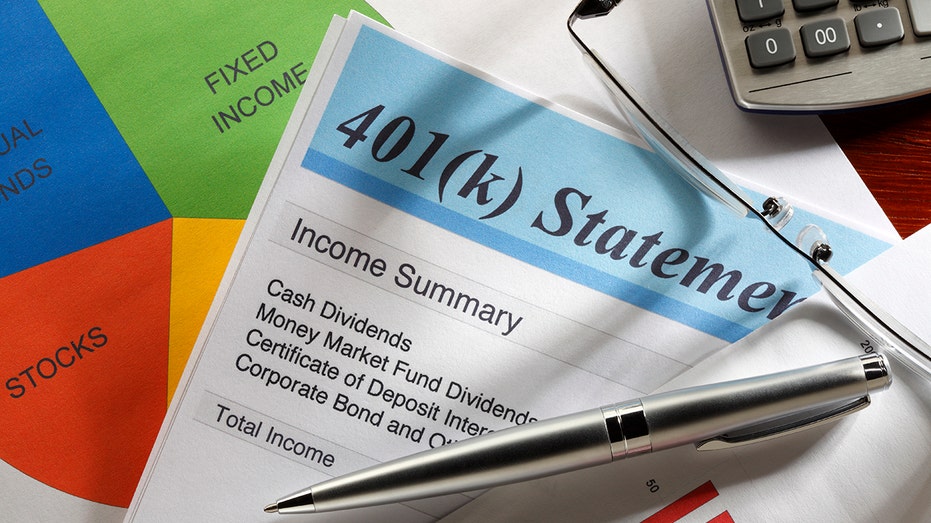Personal Finance
Retirement account balances hit highest level since 2021

Americans’ retirement account balances are at their highest level in more than two years due to a combination of increased savings rates and positive market conditions, new findings from Fidelity Investments show.
Fidelity’s Q1 2024 Retirement Analysis released Thursday, its latest update tracking the savings behaviors and balances of 45 million accounts, determined retirement balance averages hit a level not seen since the fourth quarter of 2021.
The study found average 401(k) savings rates hit a record high of 14.2% in the first three months of the year, while the average balance rose 6% to $125,900. Both employee and employer savings rates matched previous record levels of 9.4% and 4.8%, respectively.
Individual Retirement Account (IRA) balances jumped 10% in the quarter to an average of $127,745, while 403(b) balances rose 7% to $113,000.
RETIREES FORCED TO RETURN TO WORK AS INFLATION EATS INTO SAVINGS: ‘IT’S JUST NOT ENOUGH’
Also last quarter, the average balance for an account for continuous 15-year savers from Gen X ($543,400) surpassed the average continuous balance for Baby Boomers ($543,200) who have contributed to their accounts for 15 years straight.

“We are encouraged to see account balances increase, providing solid proof that retirement savers are remaining invested and continuing to make steady contributions, while seeing the financial benefits as a result,” said Sharon Brovelli, president of Workplace Investing at Fidelity Investments.
“With continued participation across generations and income levels, retirement savers will continue to build better financial futures, which is essential to the financial health of so many Americans and our economy.”
HIGH INFLATION IS CHANGING THE WAY AMERICANS RETIRE
Account balances also received a healthy boost due to growth in the markets at the start of 2024.
Atlanta-based investment firm Montag & Caldwell noted in its first-quarter market commentary that the U.S. economy remains “surprisingly resilient,” and the Federal Reserve’s suggestion that rate cuts could happen later this year contributed to strong market gains during the quarter.
The analysis pointed to positive signs in all market sectors except real estate and credited artificial intelligence as a driving factor behind much of the market’s momentum.
“Looking ahead to the rest of the year, it is uncertain how long the consumer can sustain its spending habit, especially as savings continue to shrink,” M&C’s M. Scott Thompson wrote. “Slowing wage gains, growing credit balances, and rising interest payments and gas prices are becoming stiffer headwinds.
“We continue to expect the lagged effects of the Fed’s tightening to lead to further moderation in economic activity.”
Read the full article here

-

 Side Hustles6 days ago
Side Hustles6 days agoKFC Announces Saucy, a Chicken Tenders-Focused Spinoff
-

 Investing6 days ago
Investing6 days agoPalantir, Anduril join forces with tech groups to bid for Pentagon contracts, FT reports By Reuters
-

 Side Hustles5 days ago
Side Hustles5 days ago4 Ways Content Can Make or Break the Customer Experience
-

 Passive Income3 days ago
Passive Income3 days agoWhy Emotional Intelligence Is the Key to High-Impact Leadership
-

 Side Hustles5 days ago
Side Hustles5 days agoHow to Build a Legacy of Leadership in Your Business in Six Proven Strategies
-

 Side Hustles6 days ago
Side Hustles6 days agoHow Mentorship Shapes Resilient Leaders and Thriving Teams
-

 Personal Finance2 days ago
Personal Finance2 days agoTop personal finance New Year's resolutions for 2025
-

 Make Money6 days ago
Make Money6 days ago10 Unexpected Hacks to Maximize Your 401(K) Savings


















